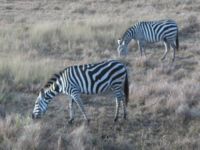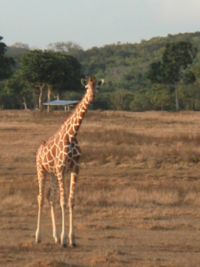wiki.Alumni.NET - Your Location Information Resource
Asia/Philippines/Palawan/Busuanga/Calauit Game Preserve and Wildlife Sanctuary/
From wiki.Alumni.NET
Current revision (06:44, 8 January 2024) (view source) |
|||
| (4 intermediate revisions not shown.) | |||
| Line 25: | Line 25: | ||
== Related Links == | == Related Links == | ||
| - | * [http://www.travelsmart.net/ph/resorts/Palawan/Club_Paradise/Calauit.htm TravelSmart.NET Calauit | + | * [http://www.travelsmart.net/ph/resorts/Palawan/Club_Paradise/Calauit.htm TravelSmart.NET Calauit] |
| + | * Articles | ||
| + | ** [http://www.travelsmart.net/article/104946/ RP safari at Calauit Wildlife Sanctuary] | ||
| + | ** [http://www.travelsmart.net/article/100750/ An African safari in Palawan] | ||
| + | ** [http://www.travelsmart.net/article/10000072/ Coron’s unique dive finds, solitude & exotic animals] | ||
| + | ** [http://www.travelsmart.net/article/104952/ Discovering Palawan’s Calamian Islands] | ||
| + | |||
| + | == Articles == | ||
| + | [[Image:jobscitylogo.gif||right|thumb|Find Philippine Travel Jobs in [http://www.jobscity.net/pls/jobs/browsejobs?location1=PH&category1=TH JobsCity.NET]]] | ||
| + | |||
| + | * [http://www.travelsmart.net/article/104946/ RP safari at Calauit Wildlife Sanctuary] | ||
== References == | == References == | ||
<references /> | <references /> | ||
| + | |||
| + | [[Category:Asia/Philippines/Palawan/Busuanga/]] | ||
| + | |||
| + | Coreball online: [https://coreball.co coreball] | ||
| + | Or Heardle online: [https://heardle80s.io heardle 80s] | ||
Current revision
Contents |
Calauit Game Preserve and Wildlife Sanctuary
- Overview
The Calauit Game Preserve and Wildlife Sanctuary (CGPWS) is located within Calauit Island in the northwestern part of Busuanga, the main island of the Calamianes, Northern Palawan. It is separated from Busuanga by extensive mangroves and the Ditapic Channel, where the waters of Illultuk Bay and the Ditapic River of Busuanga flow eastward. The CGPWS has a land cover area of approximately 3,760 hectares, wherein about 40% is open rangeland, 20% moderately undulating, and 40% hill areas. Average elevation is 50 meters above sea level (50 masl) with the highest point in Namultan Range with 237 masl. It has four major creeks that have sections that are usually dry during summer, except the Abanaban Creek that retains water even during the driest month due to an intact watershed. It has a pronounced wet season from May to November and a dry season from December to April. Average monthly rainfall is 39.4 inches, while annual precipitation is at 139.4 inches. Mean temperature is recorded at 27.6 centigrade. The marine zone area is approximated at 252 square kilometers, which is delineated seven kilometers from the mean sea level.[1]
- History
The island of Calauit was declared as a game preserve and wildlife sanctuary by virtue of Presidential Proclamation No. 1578 issued on 31 August 1976. This was in response of the Philippine Government to the global concern to save the declining African animal population in Kenya, Africa. The Giraffees at Calauit island was chosen for its relative isolation, size, topography, and vegetation, which provides the necessary environmental variability like the desired expanse of hills and plains and the availability of browsing and grazing areas.[1]
On 4 March 1977, 104 heads composed of eight species of African animals from Kenya arrived in Calauit. It included 15 giraffes, 15 zebras, 18 impalas, 12 waterbucks, 11 gazelles, 11 elands, 10 topis and 12 bushbucks.[1]After five years (ca. 1982), the animal population increased to 201 heads, of which 58 are the original stocks and 143 are island-born. It was then during the last 18 months in the said period that a significant increase in population was achieved.[1]
Pair of Zebra in Calauitthese exotic species, the waterbucks and impalas obtained the first two highest population increment. Substantial increase in population growth was also recorded for the other species, except for the topi and gazelle where high mortality during the early stages of adaptation reduced their population to less than the original number. It was in 1999 when the remaining individuals of the topi and gazelle were seen. As of September 2004, the current population was estimated at 481 heads, in which the impalas had the highest number at 150 individuals.[1]
Continuously being conducted are other previously initiated activities such as: conservation and monitoring of the island's marine resources, including the reforestation and maintenance of hills, rangelands, and mangroves.[1]
On December 29, 1994, the Department of Environment and Natural Resources (DENR) and the Palawan Council for Sustainable Development (PCSD) executed a Memorandum of Agreement, thus handing over the management of the sanctuary from the former to the latter, effective January 1995. The regular budget allocation of PhP 4M per annum was also transferred from the DENR to the PCSD.[1]
- Getting There
Nearby Hotels & Resorts
- Asia/Philippines/Palawan/Coron/Club_Paradise/
- El Rio Y Mar
Related Links
- TravelSmart.NET Calauit
- Articles
Articles
References
Coreball online: coreball
Or Heardle online: heardle 80s



